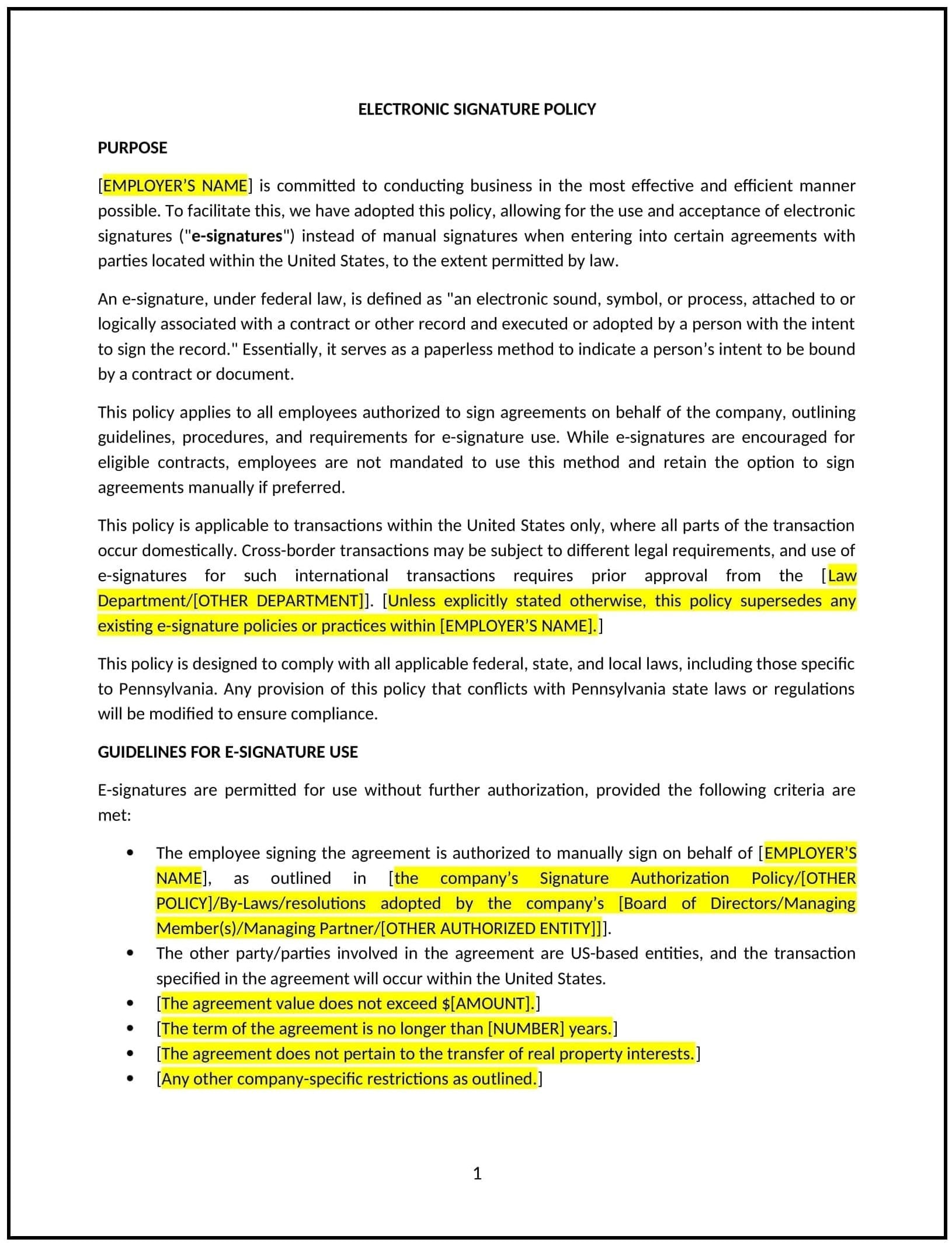Electronic signature policy (Pennsylvania): Free template
Got contracts to review? While you're here for policies, let Cobrief make contract review effortless—start your free review now.

Customize this template for free
Electronic signature policy (Pennsylvania)
This electronic signature policy is designed to help businesses in Pennsylvania streamline processes and ensure the secure use of electronic signatures for business transactions. Whether used for contracts, agreements, or internal approvals, this template outlines guidelines for implementing electronic signatures while supporting compliance with the federal Electronic Signatures in Global and National Commerce Act (E-SIGN) and Pennsylvania’s Uniform Electronic Transactions Act (UETA).
By using this template, businesses can improve efficiency, reduce paperwork, and support a modern approach to managing documentation.
How to use this electronic signature policy (Pennsylvania)
- Define acceptable uses: Clearly specify the types of documents and transactions where electronic signatures are permitted, such as contracts, invoices, or HR forms.
- Establish security requirements: Include protocols for verifying the identity of signers, such as two-factor authentication or email verification.
- Address storage and retention: Detail how electronically signed documents will be stored securely and retained in compliance with Pennsylvania and federal regulations.
- Include exceptions: Identify scenarios where physical signatures may still be required, such as notarized documents or specific industry regulations.
- Reflect Pennsylvania-specific considerations: Tailor the policy to align with Pennsylvania laws and industry practices regarding the use of electronic signatures.
Benefits of using an electronic signature policy (Pennsylvania)
A well-structured electronic signature policy supports efficiency and security. Here's how it helps:
- Enhances efficiency: Streamlines workflows by eliminating the need for physical signatures, saving time and resources.
- Supports security: Ensures electronic signatures are authenticated and protected against unauthorized access.
- Encourages consistency: Provides clear guidelines for using and managing electronic signatures across the organization.
- Reduces costs: Minimizes expenses related to printing, mailing, and storing physical documents.
- Reflects local practices: Aligns with Pennsylvania’s legal and business standards for electronic transactions.
Tips for using an electronic signature policy (Pennsylvania)
- Communicate expectations: Share the policy with employees and provide training on how to use approved electronic signature platforms.
- Choose secure platforms: Use reputable electronic signature solutions that comply with UETA and E-SIGN requirements.
- Monitor compliance: Regularly audit the use of electronic signatures to ensure adherence to the policy and legal standards.
- Address client preferences: Be flexible when dealing with clients or partners who may prefer physical signatures for certain documents.
- Review periodically: Update the policy to reflect changes in Pennsylvania laws, federal regulations, or technological advancements.